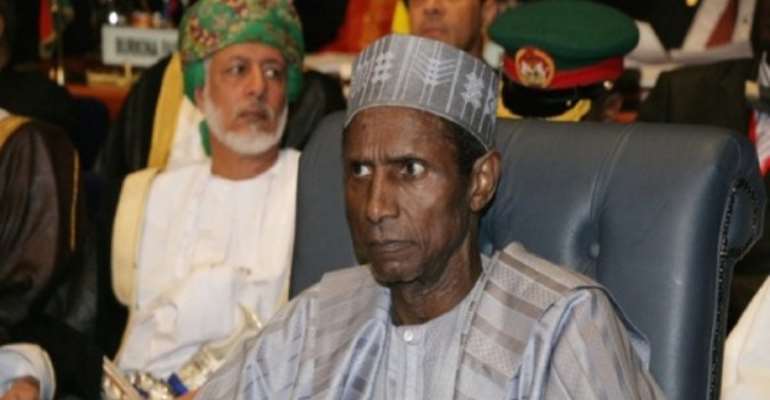WikiLeaks Cables: Nigeria Feared Coup As President Lay Dying Overseas

The ill health of Nigeria's president sparked fears of a military coup and caused screaming matches over who was in charge of the country, according to secret US diplomatic cables.
Umaru Yar'Adua, who was terminally ill, left the country in November 2009 for medical treatment in Saudi Arabia.
A US memo marked secret and dated 26 February, just after Yar'Adua's return, reveals frantic negotiations in the corridors of power of Africa's most populous nation.It says the acting president, Goodluck Jonathan, admitted "'everyone's confused' about who is in charge of Nigeria".
"He said the last cabinet meeting was disastrous and included yelling and screaming, and it is totally dysfunctional. He said he is 'not a politician' and had very limited experience as an administrator, but concluded, 'I will not tolerate a brawl.'"
Jonathan named political enemies whom he accused of destabilising the government. "This terrible situation in the country today has been created by four people: Turai Yar'Adua [the ailing president's wife], his chief security officer (CSO) [Yusuf Muhammad Tilde], his aide-de-camp (ADC) [Colonel Mustapha Onoedieva] and Professor Tanimu Yakubu [his chief economic adviser]."
Referring to Jonathan as "the AgP", the memo states: "The AgP said he does not know their motives, but expected it was likely for nefarious purposes ... The AgP noted that 'people are angry'."
Nigeria has a history of army interventions and under the subheading "Fears about military" the cable notes: "The AgP said the military chiefs are making sure no politicians are reaching out to the rank-and-file, and encouraging the military to stay in the barracks so that the uncertain political situation does not generate coup-like behaviour emanating from the mid-ranks because of the confusion."
The memo reveals America's silent role in the Nigerian crisis. Robin Sanders, the US ambassador, "encouraged Jonathan to change the perception that he is a regional figure, and be seen, rather, as a national figure who has the best interest of the nation at heart".
"Ambassador expressed that given that the US and Nigeria are very best friends, we feel the need to share our concerns, as any good friend would do, and that we are counting on him to steer Nigeria through this troubled and uncertain period."Jonathan said he was picked as Yar'Adua's running mate in 2007 because he represented the Niger Delta. "I was not chosen to be vice-president because I had good political experience. I did not. There were a lot more qualified people around to be vice-president, but that does not mean I am not my own man."
The document concludes: "It is always hard to judge how some will behave (or surprise you) when leadership is unexpectedly thrown in their lap. The verdict is out on Jonathan and his previously underwhelming personality and performance needs to keep us in the cautious lane, but so far, so good. Things are quiet."
Yar'Adua died in May this year and Jonathan was swiftly sworn in as president. He has since announced his intention to contest elections next January.
